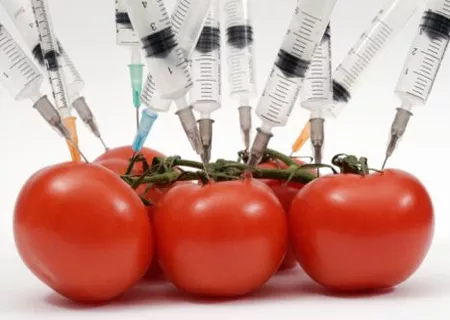Friday, May 24, 2013
News Charlotte to participate in worldwide March Against Monsanto
Posted By Tori Wright on Fri, May 24, 2013 at 1:37 PM
Many people know very little about genetically modified organisms (GMOs). Here's a scary thought: GMOs are becoming so prevalent that some people are consuming them in every meal.
Insert a shudder here.
On Saturday, May 25, locals will gather at Marshall Park to protest Monsanto, an agricultural company that controls more than half of the global seed industry and is known for genetically modifying soybeans and other seeds. The March Against Monsanto is the first event of this significance to bring awareness to GMOs. Charlotte is one of more than 250 cities worldwide participating in the march.

While newer technology generally brings easier, cheaper and more efficient ways of living, the recent rise in food-related diseases (from gluten allergies to diabetes) is making people think twice about the marvels of modern science and causing people to take a better look at the food they're eating. As such, protestors are planning to march to encourage the federal government to require labeling so consumers can make more informed decisions about their food. They are also calling on the FDA for better research on the long-term health effects of GMOs and are holding Monsanto and its supporters accountable.
Helping to organize Saturday's march, Dawn Simone is the founder of Do Not Alter, an organization that advocates GMO labeling. Simone became involved with the fight against GMOs when her son was diagnosed with autism four years ago, and her research on the causes of the disorder led to her discovery of the risks associated with GMOs and their pervasiveness, which she describes as being "un-American."
"This is the United States. We're supposed to have freedom of choice, but we don't. The GMOs are not contained. They are spreading to the natural environment, and once they're there, it's not something you can call back from nature," she said in a recent phone conversation.
GMOs are not just a national problem. The U.S. is one of 36 countries participating in the March Against Monsanto on Saturday. Sixty-four countries already have regulations banning or restricting GMOs, including China, Australia and the E.U., according to the Center for Food Safety.
"It's a worldwide concern. It's not an issue that's partisan. It's not left versus right or east versus west. It's global," Simone said.
For more information about the march at Marshall Park, visit the Facebook event page.
Speaking of...
Comments (2)
Showing 1-2 of 2
Latest in The CLog
More by Tori Wright
-

Get your fill of tequila at new Mexi-Cali restaurant Bakersfield
Sep 17, 2014 -

Nan and Byron’s welcomes new executive chef
Aug 26, 2014 -

Draught Charlotte is the newest addition to Third Ward
Aug 20, 2014 - More »










